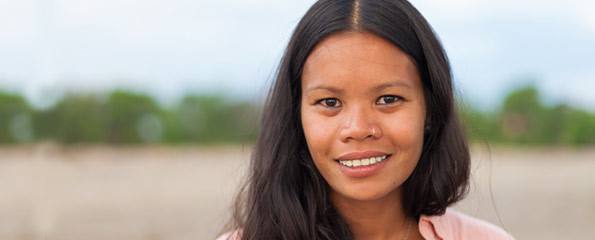New handbook to reduce the impact of gynaecological cancers in Indigenous women
A new publication from Cancer Australia will help Aboriginal and Torres Strait Islander Health Workers reduce the impact of gynaecological cancers in their communities by providing women with information and support.
Gynaecological Cancers: a Handbook for Aboriginal and Torres Strait Islander Health Workers and Health Practitioners promotes risk reduction, cervical cancer screening, awareness of symptoms, early detection and appropriate and timely referral and treatment.
Gynaecological cancers include cervical, endometrial (uterine) and ovarian cancers. Aboriginal and Torres Strait Islander women have a different pattern of gynaecological cancer incidence and mortality compared to non-Indigenous women.
Aboriginal and Torres Strait Islander women are 2.5 times more likely to be diagnosed with, and 3.8 times more likely to die from cervical cancer. They are also 1.8 times more likely to be diagnosed with, and 2.2 times more likely to die from endometrial cancer.
Cancer Australia CEO, Dr Helen Zorbas, said that Aboriginal and Torres Strait Islander Health Workers play a vital role in the healthcare of Indigenous communities and are critical to better cancer outcomes.
“Gynaecological cancers: a handbook for Aboriginal and Torres Strait Islander Health Workers has been developed with input from key Indigenous health organisations and experts.
“The Handbook guides Health Workers in addressing misconceptions about gynaecological cancers, suggests ways to encourage women to reduce their risk, including undertaking cervical cancer screening and HPV vaccination, and provides methods for managing embarrassing or sensitive topics,” said Dr Zorbas.
“It contains chapters explaining cervical, endometrial and ovarian cancers, providing support for women through a cancer diagnosis and treatment, and suggesting ways to manage instances where a woman’s cancer returns or spreads.
“It also emphasises the importance of ensuring women understand the medical advice they’re given and explaining medical jargon, and how Health Workers can use diagrams, pictures and written information for the woman and her family to take away.
“All of these are steps towards improving gynaecological cancer outcomes for Aboriginal and Torres Strait Islander women,” Dr Zorbas said.
(Source: Cancer Australia)
Dates
Tags
Created by:

 Login
Login














